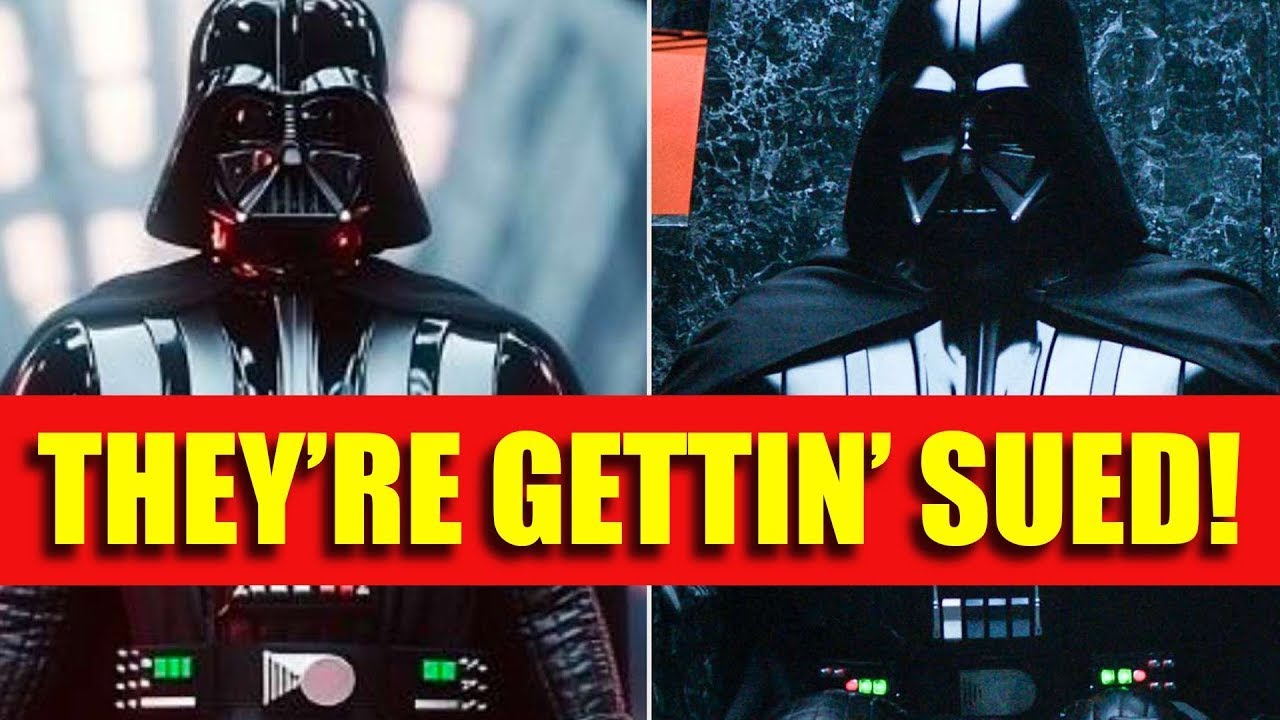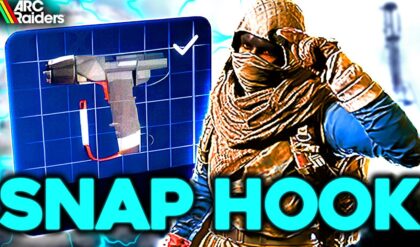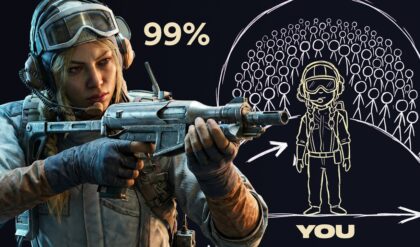Disney’s AI War Just EXPLODED! 🔥
Hollywood giants Disney & Universal are suing Midjourney.
Why? AI “plagiarism” of Darth Vader, Shrek, and more!
Is this a battle for creativity or a corporate power grab?
What’s really at stake?
Click to uncover the truth! 👇
On June 11, 2025, Disney and Universal filed a 110-page lawsuit against Midjourney, a San Francisco-based AI image generation startup, in the U.S. District Court for the Central District of California. The lawsuit, described by outlets like The Hollywood Reporter as a “bottomless pit of plagiarism,” accuses Midjourney of copyright infringement by training its AI on Disney and Universal’s intellectual property (IP) to generate unauthorized images of characters like Darth Vader, Shrek, and Elsa from Frozen. This marks the first time major Hollywood studios have taken legal action against a generative AI company, sparking debates about creativity, technology, and the future of entertainment. X posts, such as @MarioNawfal’s claim that “Hollywood just declared war on AI,” amplify the stakes. This article explores what happened, why it matters, and what’s next, drawing on reports and critical analysis.

The Lawsuit: What’s the Complaint?
Disney and Universal allege that Midjourney’s image generator, which creates visuals from text prompts, is a “virtual vending machine” producing “endless unauthorized copies” of their copyrighted characters. The complaint lists over 150 infringed works, including Star Wars’ Yoda, The Simpsons’ Homer Simpson, Marvel’s Spider-Man, and Despicable Me’s Minions, with side-by-side images showing Midjourney’s outputs closely resembling studio originals. Prompts like “Yoda with lightsaber, IMAX” or “The Boss Baby” allegedly yield near-identical replicas, which the studios call “calculated and willful” plagiarism. They claim Midjourney’s $300 million in 2024 revenue, driven by 21 million subscribers paying $10–$120 monthly, profits off this theft.
The studios argue Midjourney trained its AI by scraping their IP from the internet without permission, a practice CEO David Holz admitted in a 2022 Forbes interview, saying he performed “a big scrape of the Internet” without seeking consent for copyrighted works. Disney and Universal sent cease-and-desist letters—Disney in 2024, Universal in May 2025—but claim Midjourney ignored requests to stop or implement filters, despite having tools to block content like violence or nudity. The lawsuit seeks statutory damages up to $150,000 per infringed work (potentially $22.5 million for 150 titles), an injunction to halt Midjourney’s image and upcoming video services, and transparency into its training data.
Why Now? Hollywood’s AI Anxiety
The lawsuit reflects Hollywood’s uneasy relationship with AI, a technology studios both embrace and fear. Disney’s chief legal officer, Horacio Gutierrez, stated, “We are bullish on AI technology and optimistic about how it can be used responsibly,” but called Midjourney’s actions “piracy.” NBCUniversal’s Kim Harris echoed this, emphasizing protection for artists and investments. The Motion Picture Association, per chairman Charles Rivkin, supports the suit, calling copyright “the backbone of our industry” that sustains 2.3 million jobs and $229 billion in wages.
Hollywood’s hesitation to sue earlier stems from strategic caution. The New York Times’ 2023 lawsuit against OpenAI set a precedent, surviving “fair use” challenges, while artists like Kelly McKernan sued Midjourney in 2023 for similar reasons. Disney and Universal, with vast IP libraries, waited until Midjourney’s prominence—bolstered by high-quality outputs and a growing user base—made it a prime target. The Writers Guild of America, per a December 2024 statement, had urged studios to act, citing AI’s use of scripts and films for training. The 2023 WGA and SAG-AFTRA strikes, partly over AI protections, further highlight industry concerns about job displacement and IP theft.
X posts reflect divided sentiment. @CharlieHSilver argues AI scraping without consent is a “ticking time bomb,” while @ArtByAeon defends Midjourney, claiming Disney built its empire on “borrowed myths” and now sues innovators. This split mirrors broader debates: is AI a tool for creativity or a threat to creators?
Midjourney’s Defense: Fair Use or Overreach?
Midjourney has not formally responded to the lawsuit, but CEO David Holz, in a June 11, 2025, call with users, expressed confidence, saying, “Midjourney is going to be around for a very long time.” In a 2022 AP interview, Holz likened his service to a “search engine” and argued that copyright laws adapt to human creativity, questioning whether artists need permission to draw inspiration. Midjourney may argue its outputs are protected by the “fair use” doctrine, claiming they are “transformative” by adding new meaning or expression.
However, legal experts are skeptical. IP lawyer Chad Hummel told WIRED the lawsuit’s visual evidence—near-identical character replicas—undermines fair use claims, as courts prioritize whether outputs harm the original’s market. Emory University’s Matthew Sag noted Disney’s focus on outputs, not just training data, makes Midjourney’s defense tougher than OpenAI’s in The New York Times case. A Delaware ruling in February 2025 against an AI legal platform copying Thomson Reuters’ content further weakens the fair use argument.
Midjourney’s “Explore” page, showcasing user-generated images of copyrighted characters, is a key point of contention. Disney and Universal argue this proves Midjourney knowingly profits from infringement, a claim bolstered by the company’s failure to filter outputs despite having the capability. The studios’ demand for training data transparency could expose Midjourney’s methods, potentially setting a precedent for AI regulation.
The Stakes: Hollywood, AI, and the Future
The lawsuit’s outcome could reshape entertainment and AI. A Disney-Universal victory might force AI companies to license content, raising costs but clarifying legal risks. The Hollywood Reporter suggests studios could settle, with Midjourney paying damages and licensing fees, allowing continued use of their IP. A loss for the studios could greenlight unchecked AI training, flooding markets with unlicensed content and undercutting creators. A decisive win banning training on copyrighted works, per TIME, would disrupt AI business models reliant on internet data.
For Hollywood, the suit is existential. The industry, contributing $260 billion annually, faces AI tools like Moonvalley and Runway that generate Hollywood-grade visuals, potentially reducing reliance on human labor. Disney itself uses AI internally, like its FRAN network for VFX, while Warner Bros. and Netflix have partnered with AI firms. The lawsuit targets Midjourney’s “bad actor” status, not AI itself, signaling studios want control over how their IP is used.
For AI firms, the case tests the “fair use” defense. Midjourney’s small team—less than a dozen staff—faces two media giants, Disney (third-largest by market cap) and Universal (owned by Comcast’s NBCUniversal). X posts like @CodeByPoonam note the lawsuit’s potential to set legal precedents for creative AI, impacting firms like Stability AI and OpenAI, also facing suits. A loss could push AI companies toward licensing deals, as seen with The New York Times’ Amazon agreement, or force costly retraining with non-copyrighted data.
Broader Context: A Crowded Legal Landscape
The Disney-Universal suit joins a wave of AI copyright cases. The New York Times sued OpenAI and Microsoft, Sony Music targeted AI song generators Suno and Udio, and Getty Images challenged Stability AI in London. A 2024 California ruling allowed artists’ claims against Midjourney to proceed, finding plausible evidence of unauthorized copying. Authors like George R.R. Martin and news outlets like The Chicago Tribune have also sued AI firms, reflecting a cross-industry pushback.
Hollywood’s unique clout—bolstered by Disney and Universal’s IP dominance—makes this case pivotal. The studios’ 143-page complaint, per TheWrap, includes dozens of visual comparisons, strengthening their argument. The Motion Picture Association’s support and potential involvement from other studios (Sony, Warner Bros., Netflix) could amplify pressure on AI firms. X posts like @koltregaskes highlight the suit’s focus on Midjourney’s training and output, setting it apart from user-driven infringement claims.
Critical Perspective: Whose Creativity?
The lawsuit raises deeper questions about creativity and ownership. Disney and Universal frame Midjourney as a thief, yet critics like @ArtByAeon on X argue Disney built its empire on public domain stories (e.g., Cinderella, Snow White) and now gatekeeps innovation. Midjourney’s defenders see AI as democratizing art, allowing users to reimagine characters, much as fan fiction does. However, the studios’ evidence—near-exact replicas—suggests Midjourney’s outputs often lack transformative value, undermining this defense.
Conversely, Hollywood’s selective embrace of AI—using it for cost-cutting while suing competitors—invites skepticism. Disney’s Gutierrez claims to champion artists, but the 2023 strikes revealed tensions over AI’s labor impacts. The lawsuit’s focus on “protecting artists” may mask corporate interests in controlling AI’s profit potential. As Vulture notes, studios like Disney aren’t anti-AI; they want to dictate its terms.
What’s Next?
The case, likely years from resolution, faces hurdles. Midjourney’s fair use defense hinges on proving its outputs are transformative, a tough sell given the complaint’s visuals. Discovery could reveal Midjourney’s training data, setting transparency standards. A settlement, per The Hollywood Reporter, is plausible, with Midjourney licensing Disney and Universal’s IP. A studio win could force AI firms to overhaul training practices, while a loss might embolden unchecked scraping, per TIME.
The lawsuit’s ripple effects are already clear. X posts like @DEADLINE note its role as a “warning to tech giants,” signaling Hollywood’s readiness to fight. Other studios may follow, and AI firms may pivot to licensed datasets to avoid litigation. For creators, the suit is a double-edged sword: a win protects their work, but a loss could flood markets with AI-generated knockoffs. As the battle unfolds, it will shape not just Disney and Midjourney, but the future of art, technology, and ownership.





